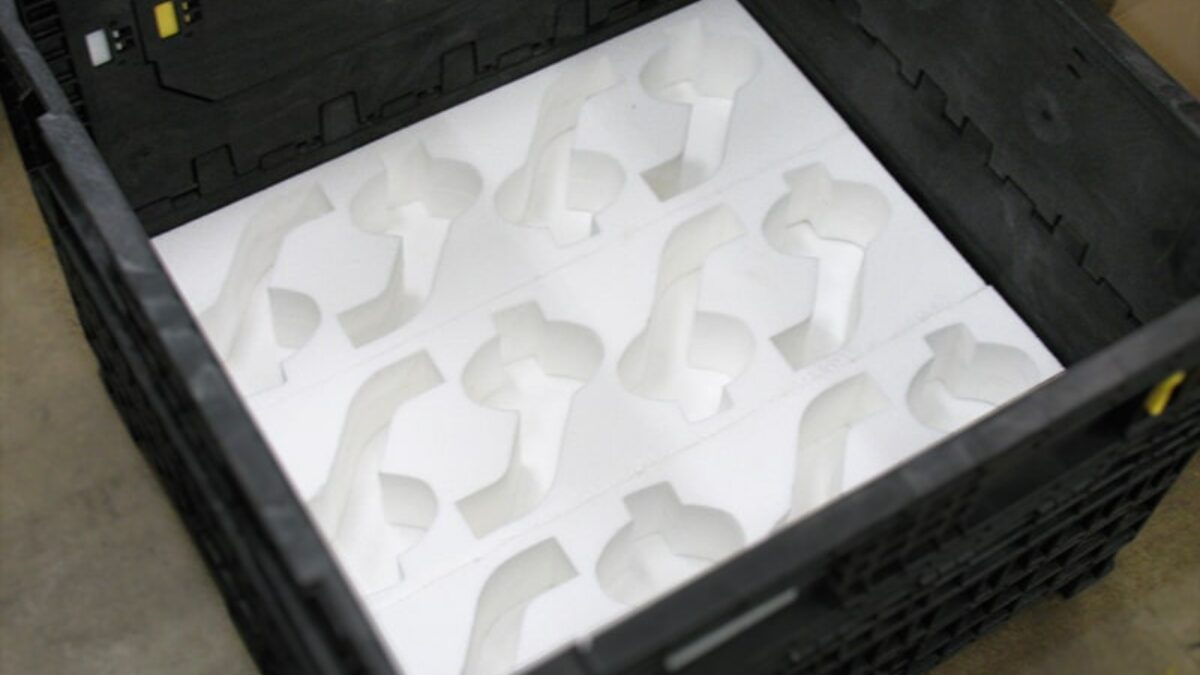Low abrasion foams are designed to be used in packaging and other applications where the objects they protect have sensitive surfaces that are susceptible to damage from abrasion. These types of foam are specifically designed and fabricated to minimize friction, surface damage, or wear when in contact with other surfaces. These types of foam are typically soft and smooth, and they can come in open-cell and closed-cell varieties.
Low and non-abrasive foams are particularly useful in protecting Class A surfaces, which are characterized by their smoothness, flawless appearance, and absence of visible defects, imperfections, or blemishes. It’s essential to use these types of foams in the shipping and storage of these types of products in order to ensure they maintain their Class A designation from manufacturing through shipping and delivery. These are common in the automotive, aerospace, military, and many other industries.
What types of foam can be considered low abrasion? If you are looking for this designation, these are your most common options.
Expanded Polyethylene Foam (EPE)
Expanded Polyethylene foam (EPE) is a durable closed-cell (beaded) foam that is widely used as a packaging material. It is soft, lightweight, and very non-abrasive making it ideal for class A surface protection, cushioning fragile items, electronics, glassware, and sensitive equipment. It’s versatile and can be used in many packaging applications.
Polyurethane Foam
Polyurethane foam is a low-density open-cell foam option that offers good shock absorption and cushioning, all while being gentle on surfaces. While polyethylene is usually used for larger, more bulky items, polyurethane foam is more ideal for smaller and more delicate products.
Polyethylene Low Abrasion Foam (LA)
Some polyethylene foam manufacturers offer a low abrasion (LA) version of the in their portfolio of products. Generally, this foam is on the lighter side of the offered density range – 2# is most common.
Cross-Linked Polyethylene Foam
Cross-linked polyethylene (XLPE) is a durable closed-cell foam that is generally used in applications that require thicker, more resilient protection. It has a high shock absorption and tear, impact, and puncture resistance, on top of having low abrasion capabilities.
Expanded Polystyrene
Expanded polystyrene (EPS) is lightweight, rigid, and very well known for its insulation capabilities. It’s also one of the most cost-effective foams without sacrificing dimensional stability, making it a very common and well-regarded packaging foam.
Reducing Edge Roughness When Fabricating Foam Packaging
While many foams are well known for their low abrasiveness, some fabrication techniques can create rough edges that make the material more abrasive. If you’re concerned about the roughness of the edges of your piece of foam, talk to your foam fabricator and discuss fabrication techniques that can reduce edge roughness.
At Amcon Foam, we specialize in many foam fabrication techniques. We can customize foam for your application using techniques like waterjet cutting and flash cutting, both of which are specifically used to soften the edges of the pieces of foam they cut. Many more fabrication capabilities are available, so get in touch with us to talk about how we can get you low abrasion foam for your application.


